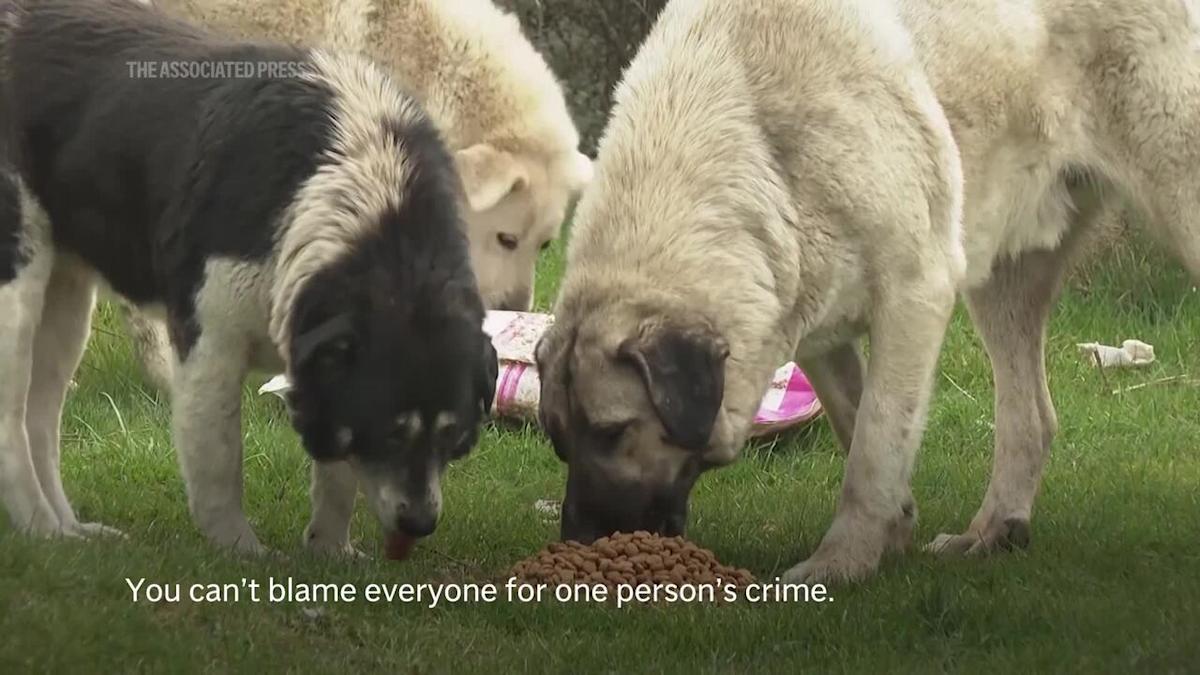Turkish Government’s Bold Move: Stray Dog Culling Law Sparks Outrage and Debate
In a dramatic and controversial decision, Turkish authorities are moving forward with a new law aimed at addressing the issue of stray dogs in urban areas, following a tragic incident that resulted in the death of a two-year-old child. This proposed legislation, which focuses on the culling of stray dogs, has ignited a fierce debate across the nation, provoking strong reactions from animal rights activists, local communities, and public safety advocates alike. The implications of this law extend beyond mere animal control; they touch upon deep ethical considerations regarding the treatment of animals, public safety, and community responsibility.
The Incident That Triggered the Law
The catalyst for this legislation was a heartbreaking event in which a two-year-old child was fatally attacked by a pack of stray dogs in a suburban area. This tragedy sent shockwaves through the community and prompted immediate calls for action from both the public and government officials. In the wake of the incident, many residents expressed fear and concern regarding the presence of stray dogs, which are a common sight in many parts of Turkey.
In response, the Turkish government proposed a law that would allow for the culling of stray dogs deemed dangerous or a threat to public safety. Advocates for the law argue that it is a necessary step to protect citizens, particularly children, from potential harm. However, this viewpoint is met with significant opposition from animal rights groups who argue that such measures are inhumane and reflect a broader issue of neglect in addressing stray animal populations.
The Ethical Dilemma: Animal Rights vs. Public Safety
The ongoing debate surrounding the stray dog culling law raises important ethical questions. Proponents of animal rights contend that all living beings deserve compassion and protection. They argue that the solution to the stray dog problem lies not in culling but in more humane approaches, such as:
- Spay and neuter programs to control the population.
- Adoption initiatives to find homes for stray dogs.
- Community education on responsible pet ownership.
On the other hand, supporters of the culling law highlight the urgent need for public safety. They emphasize that, while compassion for animals is important, the safety of citizens must take precedence. This perspective brings to light the complex balance between protecting animal rights and ensuring public welfare.
Public Reaction and Activism
The proposed culling law has sparked widespread outrage and mobilized animal rights activists across Turkey. Protests have erupted in several cities, with demonstrators voicing their disapproval through banners and loud chants, demanding more humane solutions. Social media platforms have also become battlegrounds for this debate, with hashtags like #SaveStrayDogs trending as people share stories, images, and petitions advocating for the protection of these animals.
Activists argue that culling will not solve the underlying issues of stray dog populations. They highlight that many of these dogs are abandoned pets or descendants of pets left to roam unsupervised. Instead of resorting to culling, they propose that the government should invest in:
- Building animal shelters and rehabilitation centers.
- Implementing community programs to support responsible pet ownership.
- Creating awareness campaigns about stray animal welfare.
Moreover, many activists emphasize the importance of fostering a culture of empathy and care for all living beings. They propose that educating the public about the plight of stray dogs can lead to more community involvement in animal welfare.
Government Perspective and Justifications
In defending the culling law, government officials have cited studies that indicate an increase in incidents involving aggressive behavior from stray dogs, particularly in urban areas. They argue that the culling of dogs that pose a threat is a necessary measure to ensure community safety. Furthermore, authorities claim that they are working on a comprehensive plan that includes both culling and rehabilitation measures for less aggressive animals.
The government has also pointed out that many cities around the world have faced similar challenges and have implemented various strategies to manage stray populations. However, critics argue that culling is a short-term solution that fails to address the root causes of the problem.
International Perspectives on Animal Control
Globally, the management of stray dog populations varies significantly. In some countries, humane approaches have gained traction, leading to successful outcomes in reducing stray populations without resorting to culling. For instance:
- India: The Animal Birth Control (ABC) program focuses on spaying and neutering strays while returning them to their original locations, thereby controlling population growth.
- Brazil: Brazil has seen success with community-driven initiatives that promote adoption and responsible pet ownership.
These examples suggest that with the right policies and community engagement, it is possible to manage stray dog populations humanely. This raises the question of whether the Turkish government could consider alternative approaches rather than culling, which may not only be seen as inhumane but also could lead to public backlash and further complicate the issue.
Looking Forward: A Call for Compassionate Solutions
The debate surrounding the Turkish government’s stray dog culling law is emblematic of a broader struggle between animal rights and public safety. It is a poignant reminder that the way we treat animals reflects our values as a society. As discussions continue, it is crucial for all parties—government officials, activists, and citizens—to engage in open dialogue that prioritizes compassion and empathy.
In the wake of this controversy, communities across Turkey have an opportunity to come together to explore sustainable and humane solutions. By investing in education, rehabilitation, and community support, it is possible to create a safer environment for both humans and animals alike, fostering a culture that values life in all its forms.
Ultimately, the path forward must be characterized by empathy, responsibility, and a commitment to finding ways to coexist peacefully with our four-legged neighbors. The eyes of the world are watching as Turkey navigates this complex issue, and the choices made today will undoubtedly shape the future of animal welfare in the country.
See more BBC Express News

